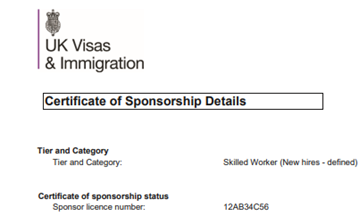Senior Care Workers, classified under SOC Code 6136, are essential professionals in the healthcare sector dedicated to providing high-quality care for service users. Their role encompasses a broad range of responsibilities, ensuring that individuals receive comprehensive support tailored to their unique needs. Below are key highlights of their role:
- Care Assistance: Support service users with all aspects of their care needs, focusing on physical, emotional, and spiritual well-being.
- Condition Monitoring: Regularly monitor and assess service users' conditions, maintaining accurate records and collaborating with healthcare professionals to develop effective care plans.
- Leadership: Oversee a team of care workers and home carers, taking responsibility for shift management and ensuring consistent quality in service delivery.
- Emergency Response: Quickly respond to emergencies, offering guidance to care workers and assisting service users with personal care tasks, meal preparation, and comfort provisions.
- Activity Planning: Provide stimulating activities and support in daily tasks, including light cleaning and meal preparation, to enhance service users' quality of life.
- Mobility Assistance: Pay special attention to assisting users with limited mobility or those with physical and learning difficulties, utilizing available aids to maximize their independence.
- Record Keeping: Complete daily written records in line with company policies and procedures to ensure accurate documentation of care provided.
- Training Participation: Attend training days and courses, whether on-site or off-site, to continually develop skills and stay updated with best practices in care delivery.
- Medication Responsibilities: If professionally trained, take on additional responsibilities to distribute medication as prescribed, ensuring safety and compliance with healthcare regulations.
As the demand for senior care workers rises within the UK's healthcare sector, this guide serves to assist HR professionals in effectively hiring and sponsoring qualified individuals under the UK’s immigration system.
What is SOC Code 3411 for Senior care workers?
SOC Code 6136 refers to Senior Care Workers who assist service users in various aspects of their care needs, ensuring the highest standards of care are maintained. Their responsibilities can include:
- Assisting service users: Supporting individuals with physical, emotional, and spiritual care needs.
- Monitoring conditions: Observing and recording service users' health conditions and progress.
- Collaborating on care plans: Working alongside medical professionals to develop and implement comprehensive care strategies.
- Overseeing care teams: Supervising care workers and home carers, while taking responsibility for scheduling and service quality.
- Responding to emergencies: Providing guidance and support to care workers in urgent situations.
- Personal care assistance: Helping service users with daily living activities such as grooming, meals, and comfort.
- Engaging in activities: Providing stimulating activities and support for daily tasks to enhance service users' quality of life.
- Undertaking light housekeeping: Performing light cleaning and meal preparation as needed to maintain a safe environment.
- Assisting individuals with disabilities: Paying special attention to those with limited mobility or physical/learning difficulties, using appropriate aids.
- Maintaining records: Completing written daily reports as instructed, adhering to company policies and procedures.
- Participating in training: Attending training courses, both on-site and off-site, as required to stay current in the field.
- Medication management: For professionally trained employees, responsibilities may include the safe distribution of medications.
Senior Care Workers play a vital role in ensuring the well-being and dignity of service users, fostering a supportive and compassionate care environment.
Eligibility to Hire Senior care workers (SOC Code 3411)
1. Job Requirements
Senior care workers must demonstrate a robust understanding of care practices and meet specific qualifications or experience criteria. These may include:
- Experience: Proven experience in providing care services to individuals, particularly those with physical or learning difficulties.
- Qualifications: A relevant qualification or certification in health care, social care, or a related field is preferred.
- Skills:
- Communication: Strong verbal and written communication skills for maintaining records and collaborating with other professionals.
- Leadership: Ability to oversee and guide care workers, ensuring quality service delivery.
- Emergency Response: Skills in responding to emergencies and effectively managing crises.
- Knowledge: Understanding of personal care needs, care plans, and the use of mobility aids.
- Training: Willingness to attend ongoing training and development sessions to stay updated on best practices and new regulations.
- Documentation: Capability to complete written daily records in accordance with company policies and procedures.
- Medication Management: If professionally trained, the ability to distribute medication correctly and responsibly.
Ensure the job description aligns with SOC Code 6136 and that the senior care worker’s experience and work meet the expectations for the role.
- Salary Thresholds
- Use the Minimum Salary Calculator to ensure your salary offer meets immigration requirements.
Sponsoring Senior care workers: A Step-by-Step Guide for HR Professionals
Once you’ve confirmed that the role and candidate meet the eligibility requirements, follow this step-by-step guide to sponsoring Senior care workers under SOC Code 6136.
Step 1: Obtain a Sponsor Licence
Before hiring non-UK Senior care workers, your company or institution must obtain a sponsor licence. This licence enables you to legally sponsor overseas Senior care workers under the Skilled Worker Visa program.
- Sponsor Licence Application: Submit documentation proving that your business is legitimate and has a genuine vacancy. Visit the sponsor licence application guide for more information.
- Sponsor Licence Fees: Small businesses typically pay £574, while larger institutions pay £1,579. For more information, visit the sponsor licence fees guide.
- Processing Time: Applications typically take up to 8 weeks, but using the Sponsor Licence Priority Service can reduce the processing time to 10 working days.
Once your sponsor licence is approved, you will receive a sponsor licence number, which allows you to assign Certificates of Sponsorship (CoS).
Step 2: Assign a Certificate of Sponsorship (CoS)
Once you have your sponsor licence, the next step is to assign a CoS to the Senior care workers. This document provides key details about the job and the individual being sponsored.
- Defined vs Undefined CoS: Use a Defined CoS for Senior care workers applying from outside the UK, and an Undefined CoS for those already in the UK. Learn more in the Defined & Undefined Certificates of Sponsorship guide.
- Required Documents: Provide details such as the Senior care workers’s portfolio, passport and job offer. Refer to Documents Required for Certificate of Sponsorship for a full list of necessary documents.
Step 3: Apply for the Skilled Worker Visa
Once the CoS is issued, the Senior care workers can apply for the Skilled Worker Visa.
- Visa Fees: Fees vary depending on the role and visa length—use the visa fees calculator to estimate the costs.
- Immigration Skills Charge: Employers are required to pay this charge as part of sponsoring non-UK workers. This is separate from visa fees.
Conducting a Right to Work Check for Senior care workers
Before the Senior care workers begins working, you must conduct a right to work check to ensure they are legally allowed to work in the UK.
- Manual Right to Work Check: Verify original documents such as the Senior care workers’s passport and visa.
- Online Right to Work Check: If the Senior care workers holds an eVisa, you can use the UK government’s online system to verify their right-to-work status.
For more details on how to perform these checks, see the right to work check guide.
Post-Hiring Responsibilities and Compliance
- Record-Keeping and Reporting
- Record-Keeping: Maintain accurate and up-to-date records of the Senior care workers’s employment details, salary and contact information.
- Reporting Changes: Report any significant changes to the Senior care workers’s role—such as promotions or salary increases—via the Sponsor Management System (SMS).
- Sponsor Licence Duties and Compliance
- Failure to comply with your sponsor licence duties can result in penalties or sponsor licence revocation, impacting your ability to sponsor future Senior care workerss.
How Borderless Can Help with Sponsoring Senior care workers
Sponsoring Senior care workers under SOC Code 6136 can be a complex process, but Borderless can simplify it for you. We offer comprehensive support to help you manage the entire sponsorship process.
End-to-End Sponsorship Support
At Borderless, we assist with:
- Sponsor Licence Application: Guiding you through the application process and ensuring all required documents are submitted correctly.
- Certificate of Sponsorship Assignment: Streamlining the CoS process to make hiring easier.
- Compliance Management: Helping you stay compliant with immigration laws to avoid penalties.
If you need assistance with hiring or sponsoring Senior care workers, get in touch for personalised support.
Conclusion
Hiring and sponsoring Senior care workers under SOC Code 6136 can be a rewarding way to enrich the cultural landscape of your organisation. By following the steps outlined in this guide, you can successfully navigate the sponsorship process while ensuring compliance with UK immigration laws.
For further guidance, Borderless is ready to assist you with all your sponsorship needs. Contact us for expert advice.
Automate Home Office Audits with Borderless
The Borderless platform provides a centralized system for all sponsorships, automating reminders for key tasks and ensuring best practices across your organization, simplifying audit preparation and ongoing compliance.






